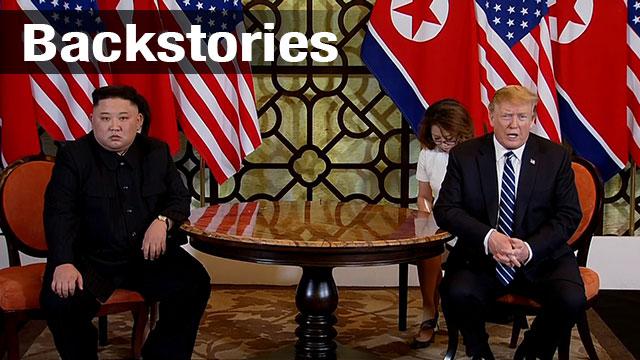Talks fail
North Korea's Foreign Minister Ri Yong Ho said on Thursday night the North offered a complete dismantling of the Nyongbyon nuclear complex under US inspection-- the research and production facility at the heart of the country's atomic development.
In return, the North asked the US to lift sanctions on it. Washington understood Pyongyang was requesting the lifting of all sanctions -- something the US couldn't accept.
Ri explained that his side only asked the US to lift the articles in its sanctions resolutions that hamper the country's economy and people's livelihood. They are five of 11 sanctions imposed on the North, adopted in 2016 and 2017.
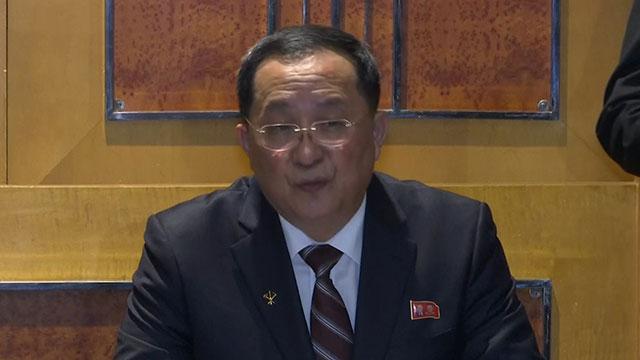
A state department official said the US reviewed the UN security council resolutions. The official said they would include a broad range of products, including metals, raw materials, transportation, seafood, and coal exports. The official said what the North asked was that all UN sanctions be lifted, except those targeting weapons and it would amount to billions of dollars in sanctions relief.
Trump walked away from "a bad deal"
At a press conference in Hanoi, Trump said he walked away from the talks as he did not want what he called a "bad deal."
In the past, Trump has criticized former President Barack Obama for striking the "worst deal ever" on Iran. Walking away from talks with Kim could be a tactic to draw better concessions from the North.
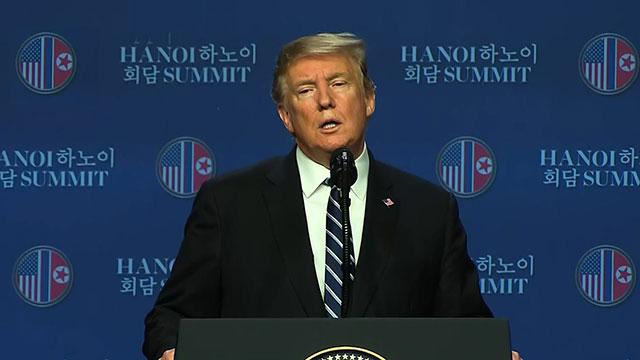
US officials suggested the money made from the lifting of sanctions would help North Korea develop weapons of mass destruction.
If Trump had agreed to a so-called soft deal with Kim, it may have impacted current US trade talks with China, as Beijing might have thought it could push for a better trade deal with the US.
Kim's miscalculations
Experts on North Korea agree that Kim is likely to be very disappointed with the failure to reach an agreement. Keio University Associate Professor Atsuhito Isozaki says Kim was rolling a dice, putting his life and his regime at risk. He says North Korea probably thought it could strike a deal with the US as it stopped nuclear and missile tests that it had spent a long time developing. And it expressed its intent to completely abandon its key Nyongbyon nuclear facility.
But Isozaki says Kim had failed to consider Trump's current position in the US. Trump could have been harshly criticized by US citizens if he had signed a partial denuclearization deal, as it is widely believed North Korea also has other nuclear facilities.
Another expert says Kim was too optimistic. Seigakuin University Professor Satoru Miyamoto says Kim believes Trump is more powerful than he actually is. If Trump agreed to lift the sanctions, he would have had to persuade other countries in the UN Security Council to also agree. Trump has maintained top-down leadership, and that probably led to a misunderstanding by Kim.
Abandoning Nyongbyon -- a big deal?
The summit revealed a big gap on the issue of denuclearization between the US and North Korea.
Meikai University Associate Professor Tetsuo Kotani says the US regards the Nyongbyon complex as a mere entrance to denuclearization, while North Korea regards it as an exit.
North Korea allegedly has other nuclear facilities which Isozaki believes are smaller or less important.
He says it was a big decision for North Korea to offer to shut down the complex. Isozaki says the North decided for the first time to abandon the complex with US surveillance.
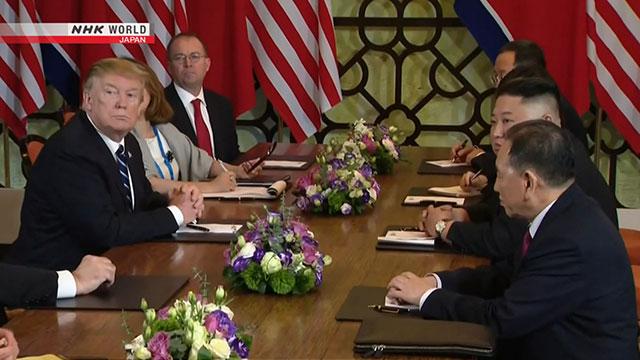
N.Korea prioritizing economy
North Korea's goal is to normalize ties with the US and get the US troops to withdraw from the Korean Peninsula. Security is of great concern to the North. At their first summit in June 2018, the country won a promise from the US to guarantee its security. So the North appears to now be prioritizing its economy.
A South Korean government-sponsored research institute estimates North Korean trade with China dropped more than 13 percent in 2017. That is believed to be due to sanctions.
Kim apparently wanted to successfully negotiate with the US to show the people his power. Economic issues also dominated his New Year's address.
Next possible step for the US
Evans Revere, a former US Principal Deputy Assistant Secretary of State for East Asia says the US will now have to recalibrate its policy and reassess its assumptions.
Revere says Trump has now learned North Korea is not impressed by talk of reform and modernization, and it simply wants to keep its nuclear weapons and to get sanctions removed. He says US policy has been based on offering incentives and promising North Korea a better future if it denuclearizes. Revere also explains the policy is based on the assumption that the North will denuclearize in response to incentives, inducements, blandishments, and promises. But he says both have now been shown to be incorrect.
Kotani said there was progress in the sense that both sides now clearly understand their differences and they have finally reached a real starting point for talks.
Secretary of State Mike Pompeo said he hopes the US envoy for North Korea will meet with his counterpart to continue negotiations within weeks.
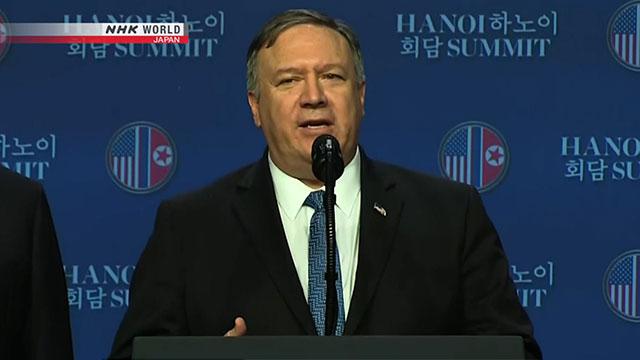
The US has moved to reduce tensions. Seoul and Washington have cancelled massive spring military drills and replaced them with lower-profile exercises.
Trump said he aims to save hundreds of millions of dollars by doing so. But he added, "Reducing tensions with North Korea at this time is a good thing."
Kotani says the US will probably propose opening liaison offices or move toward a declaration of the end of the Korean War to build trust with the North before taking concrete steps toward denuclearization.
Meanwhile, he also says the US may look to increase pressure through additional sanctions.
Trump will be hitting the campaign trail next year. To gain the support of voters, he may need to push harder for negotiations to get the North to abandon nuclear weapons.
Revere says Trump has invested so much politically in this process and in his relationship with Kim, so he will probably try to keep the dialogue intact, albeit at a lower level. He also says Trump may also try to keep the "illusion" that North Korea may denuclearize alive.
Next possible step for North Korea
The North Korean foreign minister told reporters after the collapse of the summit talks that the North won't change its basic stance. But experts believe what officials say privately and what is officially reported on state-run media are different.
No official explanation has been given on the result of the summit talks. Kim may be wondering how to proceed.
Pyongyang has repeatedly taken bold steps to threaten neighboring countries, demonstrating its power of forces or retreating from world bodies or treaties, and it has gained some concessions.
But experts say Kim will probably not take such steps this time as he could lose trust from the US, China, and other countries.
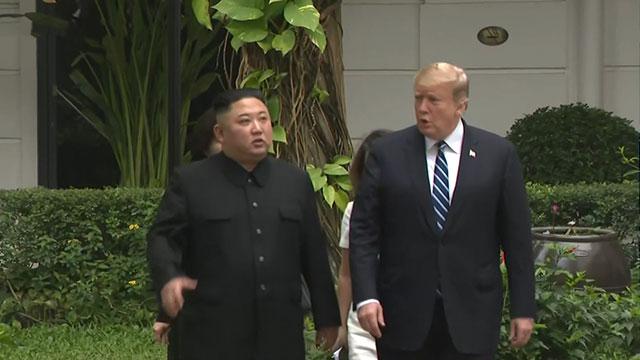
One thing for sure is that Kim still sees Trump as his best bet for getting a deal. Even after the collapse of the talks, the North's state-run media reported that Kim was thankful for Trump’s efforts.
Kim may write a letter to Trump to move things forward, and he may seek help from Chinese President Xi Jinping. Kim met with Xi four times in one year. They discussed the North's summit talks with South Korea and the US.
South Korea may try to act as a mediator between the US and North Korea. But that may not be effective as the US and North Korea maintain a direct communication channel.
Isozaki says Kim may show the US next month that he is committed to denuclearization by changing the country's constitution that stipulated the North as a nuclear power in 2012. Pyongyang is expected to convene its Supreme People's Assembly next month.
North Korea is changing
North Korea seems to be trying to walk a different path than before. Its state-run media began reporting on Kim's visit to Hanoi one day after he left Pyongyang, and it continued to report on the whereabouts of the leader every day. This is unprecedented as the North Korean leader's moves have been top secret and never revealed beforehand.
Kim seems to be confident about cementing his power inside the country and appears to be trying to free himself from old customs to find a way to escape isolation.
